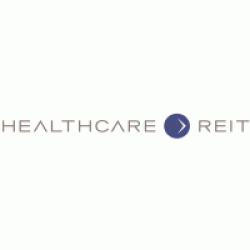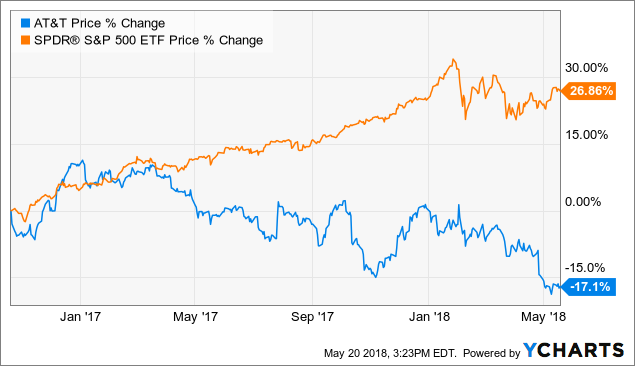With Chinese trade war turmoil rocking Chinese stocks on American markets, many investors are wondering if they should still consider buying Alibaba Group Holding Ltd.'s (NYSE: BABA) stock.
If Wall Street is to be believed, investors should stay far away – between January and May, Alibaba's stock dropped 18% as the White House pushed for aggressive trade restrictions on Chinese firms.
But Wall Street is overreacting…
As the company's recent earnings report illustrated, Alibaba's growth potential has only gotten stronger over the last year. Earnings increased 44.4% year over year, while revenue increased 61% to $9.87 billion.
Best Growth Stocks To Buy Right Now: Nordstrom Inc.(JWN)
Advisors' Opinion:- [By Jeremy Bowman]
A lot has changed since then, however. J.C. Penney badly underperformed its own comparable sales target in the second half of 2016, as comparable sales fell instead of hitting the 3-4% mark the company had projected. Its peers continued to struggle -- Macy's�(NYSE:M),�Kohl's�(NYSE:KSS), and�Nordstrom�(NYSE:JWN) all reported declining comps in the fourth quarter, and Macy's said last year it would close 100 stores.
- [By Adam Levine-Weinberg]
Nordstrom (NYSE:JWN) returned to earnings growth last quarter, as the reduced corporate tax rate helped the upscale retailer post a double-digit increase in earnings per share. Investors still dumped Nordstrom stock in after-hours trading on Thursday, punishing the company for weak comparable-store sales growth.
- [By Chris Lange]
Nordstrom Inc.’s (NYSE: JWN) most recent quarterly release is anticipated late on Thursday. The consensus forecast is $0.44 in EPS on $3.46 billion in revenue. Shares ended the week at $48.80. The consensus target price is $51.19, and the 52-week range is $37.79 to $54.00.
Best Growth Stocks To Buy Right Now: Intuitive Surgical Inc.(ISRG)
Advisors' Opinion:- [By Motley Fool Staff]
Stock No. 4: Let's go to the "I" stock from our April stocks a year ago. That's one of my favorite companies, a stock that I own, and have held for more than a decade, and that would be Intuitive Surgical (NASDAQ:ISRG), the maker of the da Vinci robot, the surgical robot.
- [By Motley Fool Staff]
In the healthcare world, one of those has to be the impressive quarterly report from Intuitive Surgical�(NASDAQ:ISRG). The company increased its revenue by 25%, and accelerated its sales of the da Vinci robotic surgical systems that made it famous. But it's not just the expensive hardware that is allowing it to prosper -- it's that every machine needs a steady supply of the disposable instruments and accessories used during its procedures. The Fools consider the recent numbers, the outlook, and the investment thesis for Intuitive Surgical stock. But in the, say, anti-healthcare space, cigarette slinger�Philip Morris International�(NYSE:PM) took a big hit as demand slackened in major foreign markets. Sales of its e-cig devices are also not growing the way management had hoped.
- [By ]
As of the time of this article, home cleaning robot maker iRobot's (IRBT) shares are down over 6% on the news. And though it makes surgical robots rather than anything meant for homes, Intuitive Surgical (ISRG) is down close to 2%. As usual, Wall Street immediately trembles on any sign that Amazon plans to further expand its reach.
- [By Garrett Baldwin]
Earnings season is now in full swing, with today's key reports from�International Business Machines Corp. (NYSE: IBM), Johnson & Johnson (NYSE: JNJ), and Intuitive Surgical Inc.�(Nasdaq: ISRG). Thanks to tax cuts, expectations are high. Analysts expect profit growth to top 18%, which would be the biggest jump in seven years. But there are a few bearish trends that are still lurking in the market. And if you're serious about making money, you need to know how to harness them and target individual stocks for life-changing gains.�Money Morning�Quantitative Specialist Chris Johnson explains.
- [By Ethan Ryder]
These are some of the news stories that may have effected Accern Sentiment Analysis’s scoring:
Get Intuitive Surgical alerts: Global Commercial Robotics Market 2018 by Key Players �� INTUITIVE SURGICAL INC , YASKAWA ELECTRIC … (themobileherald.com) Bullish or Bearish Territory: Intuitive Surgical, Inc. (ISRG) (nysestocks.review) Intuitive Surgical, Inc. (ISRG) -Price to Earnings Ratio Evaluation (P/E) (nasdaqfortune.com) Stock in Featured List: Intuitive Surgical, Inc. (ISRG) (stockquote.review) Intuitive Surgical (ISRG) Gains on Strength in Robotics (finance.yahoo.com)A number of brokerages have recently weighed in on ISRG. Cantor Fitzgerald reissued a “buy” rating and issued a $490.00 price objective on shares of Intuitive Surgical in a report on Friday, January 26th. Zacks Investment Research lowered Intuitive Surgical from a “buy” rating to a “hold” rating in a report on Friday, January 26th. ValuEngine lowered Intuitive Surgical from a “hold” rating to a “sell” rating in a report on Thursday, March 1st. Piper Jaffray Companies reaffirmed a “hold” rating on shares of Intuitive Surgical in a report on Friday, January 26th. Finally, Vetr raised Intuitive Surgical from a “buy” rating to a “strong-buy” rating and set a $478.64 target price on the stock in a report on Monday, March 19th. Five analysts have rated the stock with a hold rating, thirteen have given a buy rating and two have given a strong buy rating to the company’s stock. Intuitive Surgical presently has a consensus rating of “Buy” and a consensus target price of $457.59.
Best Growth Stocks To Buy Right Now: Buffalo Wild Wings Inc.(BWLD)
Advisors' Opinion:- [By Steve Symington]
That's not to say it was a quiet day for every stock on the market. With earnings season ramping up, brewing giant Anheuser-Busch InBev (NYSE:BUD) and restaurant chain Buffalo Wild Wings (NASDAQ:BWLD) served as an exercise in contrast as investors reacted to their respective quarterly reports.
- [By Peter Graham]
A long term performance chart shows Dave & Busters Entertainment�tripling in value�before falling back while�small cap upscale gentlemen's clubs and restaurant owner�RCI Hospitality Holdings, Inc (NASDAQ: RICK) began taking off in 2016 and small cap�Buffalo Wild Wings (NASDAQ: BWLD) is being acquired by Arby��s Restaurant Group:
Best Growth Stocks To Buy Right Now: MEDIFAST INC(MED)
Advisors' Opinion:- [By Lisa Levin]
Medifast, Inc. (NYSE: MED) shares were also up, gaining 22 percent to $121.06 after the company reported strong Q1 results and raised its FY18 guidance.
- [By Lisa Levin]
Medifast, Inc. (NYSE: MED) shares were also up, gaining 20 percent to $119 after the company reported strong Q1 results and raised its FY18 guidance.
- [By Max Byerly]
McCormick & Company, Incorporated (NYSE: MKC) and Medifast (NYSE:MED) are both consumer staples companies, but which is the superior business? We will compare the two businesses based on the strength of their earnings, valuation, profitability, analyst recommendations, institutional ownership, risk and dividends.
- [By Lisa Levin]
Medifast, Inc. (NYSE: MED) shares were also up, gaining 25 percent to $124.60 after the company reported strong Q1 results and raised its FY18 guidance.
- [By Joseph Griffin]
MediBloc (CURRENCY:MED) traded 6.8% lower against the dollar during the 1-day period ending at 15:00 PM Eastern on May 27th. MediBloc has a total market cap of $73.40 million and $743,880.00 worth of MediBloc was traded on exchanges in the last 24 hours. One MediBloc token can currently be purchased for approximately $0.0247 or 0.00000339 BTC on major cryptocurrency exchanges including Bibox, Gate.io and Coinrail. During the last seven days, MediBloc has traded 8.3% higher against the dollar.
- [By Lisa Levin] Gainers Biostar Pharmaceuticals, Inc. (NASDAQ: BSPM) shares rose 35.8 percent to $3.00. Commercial Vehicle Group, Inc. (NASDAQ: CVGI) shares surged 32 percent to $8.94 after reporting upbeat Q1 earnings. Carbon Black, Inc. (NASDAQ: CBLK) gained 29.6 percent to $24.62. Carbon Black priced its IPO at $19 per share. California Resources Corporation (NYSE: CRC) shares rose 26.8 percent to $32.70 following upbeat Q1 earnings. Pandora Media, Inc. (NYSE: P) gained 25 percent to $7.185 after reporting strong quarterly results. Medifast, Inc. (NYSE: MED) shares climbed 23.7 percent to $122.87 after the company reported strong Q1 results and raised its FY18 guidance. Natural Grocers by Vitamin Cottage, Inc. (NYSE: NGVC) rose 23.2 percent to $8.4999 after reporting Q2 results. Portola Pharmaceuticals, Inc. (NASDAQ: PTLA) gained 22.2 percent to $41.27 after the FDA approved the company's Andexxa, the only antidote indicated for patients treated with rivaroxaban and apixaban. Shake Shack Inc (NYSE: SHAK) rose 22.2 percent to $57.955 after the company reported upbeat results for its first quarter and raised its FY18 guidance. Atomera Incorporated (NASDAQ: ATOM) jumped 19.7 percent to $6.12 after reporting Q1 results. Super Micro Computer, Inc. (NASDAQ: SMCI) rose 16.4 percent to $21.00 after reporting strong preliminary results for the third quarter. Titan International, Inc. (NYSE: TWI) shares rose 16.4 percent to $12.21 following Q1 earnings. Integer Holdings Corporation (NYSE: ITGR) shares gained 14.9 percent to $63.75 following Q1 results. Control4 Corporation (NASDAQ: CTRL) shares climbed 14.5 percent to $23.98 folloiwng strong Q1 results. B&G Foods, Inc. (NYSE: BGS) climbed 12.6 percent to $25.40 after reporting Q1 earnings. HMS Holdings Corp (NASDAQ: HMSY) shares gained 10 percent to $19.59 after reporting upbeat quarterly earnings. Viavi Solutions Inc. (NASDAQ: VIAV) rose 7 percent to $10.09 following Q3 r
Best Growth Stocks To Buy Right Now: TrueBlue Inc.(TBI)
Advisors' Opinion:- [By Logan Wallace]
Trueblue (NYSE: TBI) is one of 23 public companies in the “Help supply services” industry, but how does it contrast to its rivals? We will compare Trueblue to similar businesses based on the strength of its analyst recommendations, institutional ownership, valuation, profitability, dividends, earnings and risk.
 Redwood Investment Management LLC acquired a new stake in Welltower (NYSE:WELL) during the 1st quarter, according to its most recent disclosure with the SEC. The fund acquired 4,359 shares of the real estate investment trust’s stock, valued at approximately $237,000.
Redwood Investment Management LLC acquired a new stake in Welltower (NYSE:WELL) during the 1st quarter, according to its most recent disclosure with the SEC. The fund acquired 4,359 shares of the real estate investment trust’s stock, valued at approximately $237,000.  T data by YCharts
T data by YCharts M&T Bank Corp lessened its holdings in VMware (NYSE:VMW) by 14.8% in the first quarter, according to the company in its most recent Form 13F filing with the Securities and Exchange Commission (SEC). The firm owned 13,047 shares of the virtualization software provider’s stock after selling 2,267 shares during the quarter. M&T Bank Corp’s holdings in VMware were worth $1,582,000 at the end of the most recent quarter.
M&T Bank Corp lessened its holdings in VMware (NYSE:VMW) by 14.8% in the first quarter, according to the company in its most recent Form 13F filing with the Securities and Exchange Commission (SEC). The firm owned 13,047 shares of the virtualization software provider’s stock after selling 2,267 shares during the quarter. M&T Bank Corp’s holdings in VMware were worth $1,582,000 at the end of the most recent quarter. 


